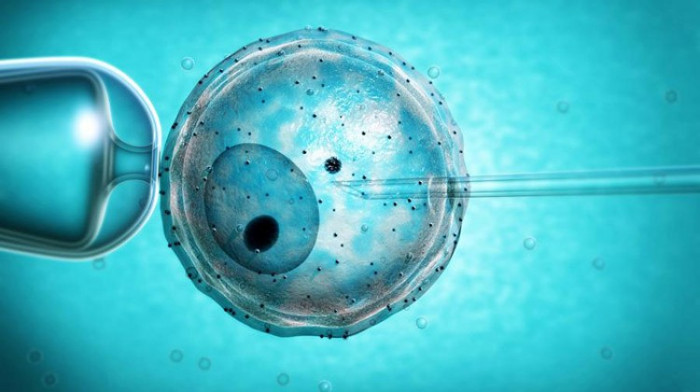Will in-vitro fertilization be at risk of premature death?
Scientists have discovered a new threat that can greatly affect in vitro fertilization technology.
Telegraph quoted evolutionary biologists as warning in a recent paper that children born from in vitro fertilization (IVF) technology may be aged. Shorter life and poorer health compared to normal children. The cause of this phenomenon is because assisted reproductive technology has neglected the extremely important natural selection process in the body.
The oldest person in the world is reproduced by in vitro fertilization, an English woman named Louise Brown. Currently, she is only 37 years old. Therefore, it will take a long time for the theory to be clearly verified.
According to Pascal Gagneux, an Associate Professor at the University of California, San Diego, serious health and longevity problems can arise because the healthiest sperm has not been selected during insemination test tube.
When sexual intercourse is complete, millions of sperm will fight each other in a very specific way inside the female genitalia. Since then, the sperm count will be reduced to just over a hundred. And finally, only the healthiest sperm can reach the egg.

There were more than 5 million children born from "test tubes" around the world.
But in vitro fertilization, eggs can be arbitrarily placed between millions of sperms or scientists will pick out any sperm and transplant it into an egg. This will lead to the risk of weak or incomplete development of sperm having the opportunity to fertilize eggs and give birth to unhealthy children.
In vitro fertilization and other reproductive support methods still contain many complex problems that have not been studied in depth.
Sperm that wants to penetrate the egg's light membrane requires undergoing transformation called capacitation. The potential process also occurs in vitro conditions (in vitro) when sperm is incubated in fluid removed from the uterus or fallopian tubes. Before this process occurs, mammalian sperm is in a less active state, mainly storing energy and preparing conditions until the egg is met. A potential sperm is a sperm capable of movement and movement of a transport agency. The molecular mechanism of the potential chemical process is not yet known. It is thought that they can alter the cell membrane composition of cells such as reducing the rate of phospholipids . Another view is that the result of the potential process is to alter the cytoplasm in the top part of the sperm.
Scientists believe that when using in vitro fertilization, the sperm's potential process will not take place fully and in accordance with the same rules as the natural environment. Since sperm and eggs are the original seeds of life, any change, even the smallest, will greatly affect the life of the organism later.
In vitro fertilization was first used in the UK in 1978. Since that time, more than 5 million children have been born with in vitro fertilization techniques worldwide.
Recent experiments show that mice born with in vitro fertilization will develop metabolic syndrome when they grow up. In addition, some mice have developed diabetes and obesity as well as hormonal dysfunction.
A 2015 study by the Swiss Heart Center in Bern also found that children born with assisted reproductive technology had poor cardiovascular health compared to normal children.
- When should I do in vitro fertilization?
- Things to know about in vitro fertilization
- In vitro fertilization fee will be only 5.4 million
- The process of creating babies in test tubes
- In vitro fertilization causes complications of pregnancy
- Drinking plenty of coffee reduces the level of successful in vitro fertilization
- Eating more processed meat increases the risk of premature death
- The father of in vitro fertilization techniques died
- This common habit may put the risk of premature death doubling
- In vitro fertilization for dairy cows
- In vitro fertilization is twice as effective in the summer
- Boys born from test tubes have a high risk of infertility
 Green tea cleans teeth better than mouthwash?
Green tea cleans teeth better than mouthwash? Death kiss: This is why you should not let anyone kiss your baby's lips
Death kiss: This is why you should not let anyone kiss your baby's lips What is salmonellosis?
What is salmonellosis? Caution should be exercised when using aloe vera through eating and drinking
Caution should be exercised when using aloe vera through eating and drinking